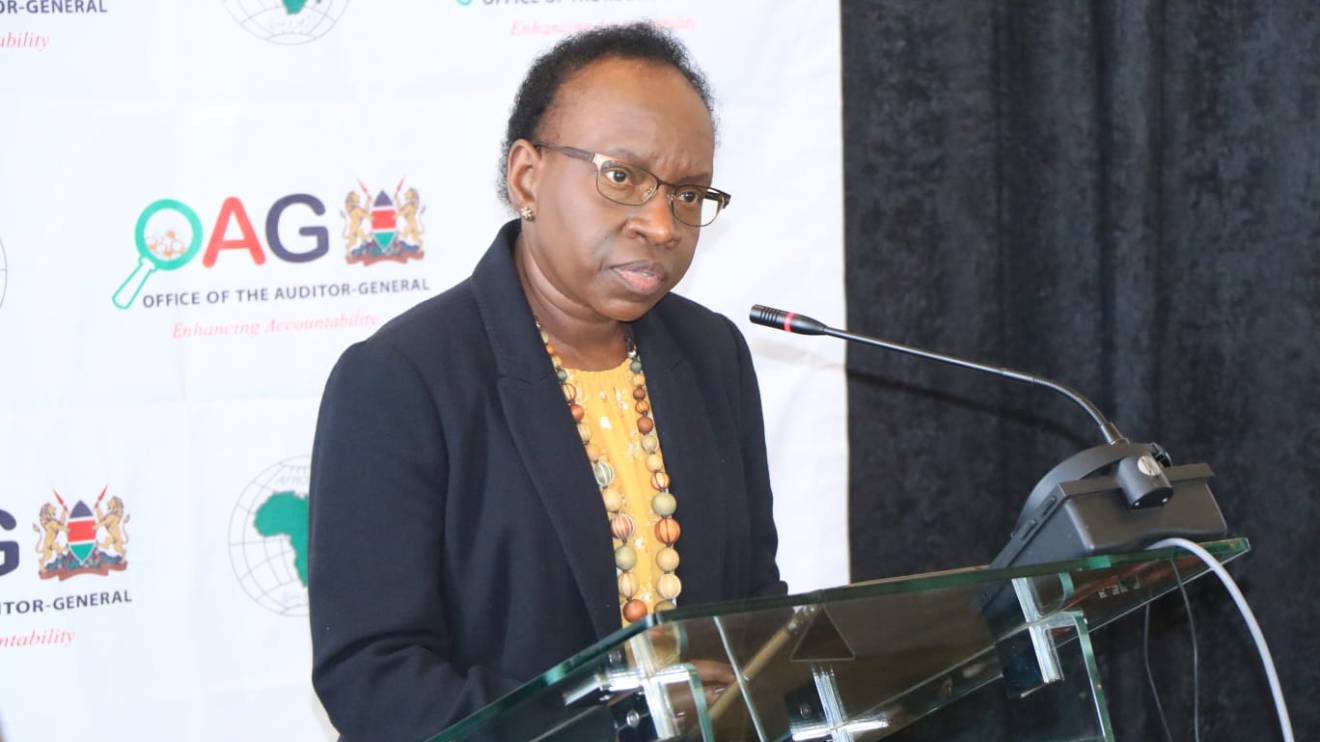A backlog of unpaid government bills amounting to Sh245.26 billion is now threatening the delivery of essential services and placing enormous pressure on small businesses and suppliers, according to the Auditor-General’s latest report.
The financial logjam spans various arms of government, including Ministries, Departments and Agencies (MDAs), and covers a range of commitments: Sh130.3 billion owed directly by MDAs, Sh64.39 billion tied to donor-backed projects, and Sh50.56 billion in contingent liabilities.
Though the law requires pending bills to take first priority in any budget cycle, Auditor-General Nancy Gathungu revealed that these debts were rolled over into the 2024/2025 financial year.
This contravenes Section 74(4) of the Public Finance Management Act, 2012, and The National Treasury’s own circulars.
The report warned of systemic budgeting flaws, noting that spending plans often fail to account for outstanding obligations from the previous year.
Read More
“In addition, the closing balance of pending bills in a previous year is usually not taken into consideration during the formulation of the budget for the subsequent year,” the report stated.
This mismatch, it explained, causes budgeting shortfalls that hinder both the completion of ongoing projects and the launch of new ones.
“Failure to settle the bills during the year to which they relate adversely affects the subsequent year’s budgeted programmes, as it may lead to reallocation of funds or non-delivery of critical services,” Gathungu's reported stated.
A separate concern flagged by the Auditor-General is that accounting officers continue to commit to expenditures without available funding, perpetuating the cycle of debt.
What’s more, the Sh245.26 billion figure does not include an additional Sh30.8 billion owed by the national government to counties as exchequer releases, nor Sh46.5 billion accrued under the Equalisation Fund as at the close of June 2024.
Amid these growing concerns, the National Treasury has deployed its Pending Bills Verification Committee to scrutinise unsettled claims.
The committee’s task is to weed out irregularities, verify authenticity, and uphold financial integrity.
The audit also warns of mounting financial penalties tied to the unsettled obligations.
Delays in payment are increasingly attracting interest charges, compounding the financial burden and further draining the exchequer.
Suppliers, particularly Micro, Small and Medium Enterprises (MSMEs), are bearing the brunt of the crisis.
The report noted that they continue to deliver goods and services on credit, without formal credit terms in place—leaving them exposed to penalties from their own financiers.
"Failure to settle the bills has an effect of withholding circulation of cash in the economy and affects the smooth operations of suppliers and Micro, Small and Medium Enterprises (MSMEs)," the report states.
"Similarly, failure to pay within stipulated timelines affects revenue collection due from Value Added Tax (VAT) and Withholding Tax."
"All these factors viewed holistically call for the Executive to put in place strict measures to deter the escalation of pending bills and to enforce fiscal discipline in public sector entities," the report added.
As for where the debts are most concentrated, 76 government institutions were cited, with the Ministry of Defence leading at Sh22.89 billion, followed by the National Treasury at Sh22.6 billion.
The State Department for Agriculture reported arrears of Sh13.6 billion, the National Police Service Sh9.9 billion, and the State Department for Correctional Services Sh5.2 billion—down from Sh6.8 billion the year before.
With the new financial year underway, the government is being urged to rein in the accumulation of bills, stick to available resources, and protect suppliers whose survival depends on timely payments.
The Auditor-General’s findings offer a stark warning: unless these fiscal missteps are addressed, both public service delivery and economic stability may suffer.







-1757663582.jpeg)
